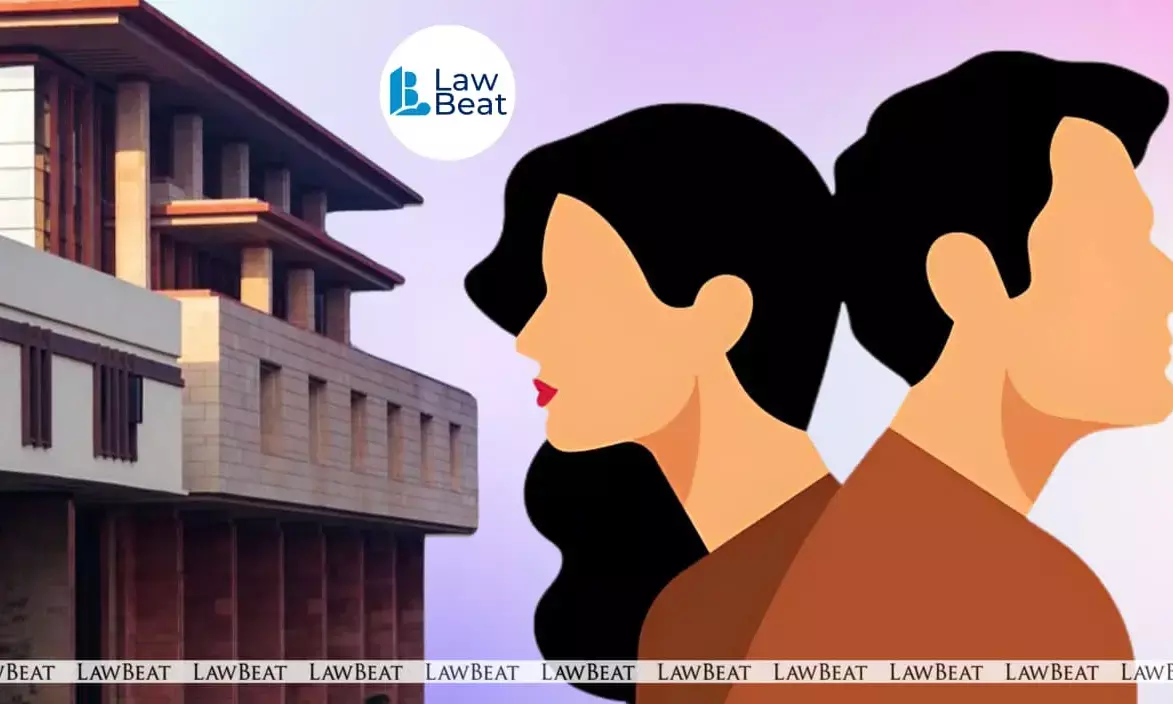Delhi High Court Says Highly Qualified Wife Earning Over Rs 1 Lakh Entitled to Maintenance

Delhi High Court held that a highly qualified wife earning Rs 1 lakh is entitled to maintenance, citing stark financial disparity with her husband
The Delhi High Court has recently held that a highly qualified wife earning over Rs 1 lakh is entitled to maintenance, observing that her income alone cannot be a bar if it is insufficient to maintain the same standard of living as in the matrimonial home.
The judgment was delivered by a Division Bench of Justices Navin Chawla and Renu Bhatnagar, who underlined that the test under Section 24 of the Hindu Marriage Act, 1955, is not merely whether the wife is employed or capable of earning, but whether her income is sufficient to enable her to maintain the lifestyle she was accustomed to during cohabitation.
Noting that the financial disparity between the spouses was stark, the Court recorded that the husband in the present case earned nearly ten times the income of the wife. “The very purpose of interim maintenance is to strike a fair balance and ensure parity in lifestyle, so that the financially weaker spouse and the child are not prejudiced by the economic advantage of the other,” the Bench observed.
The couple married on November 22, 2013, in Delhi, according to Hindu rites and customs. A daughter was born to them on August 8, 2016. The parties have been living separately since October 2019, with the custody of the child remaining with the wife. The husband later filed a divorce petition under Section 13(1)(ia) of the HMA on the ground of cruelty. The wife, while denying the allegations in her written statement, simultaneously sought interim maintenance for herself and her daughter under Section 24.
The High Court’s 14-page verdict arose from her appeal against a Family Court order which had partly allowed her plea. The Family Court had directed the husband to pay Rs 35,000 per month along with all school-related expenses for the child but declined to grant the wife any maintenance. Aggrieved, she approached the High Court seeking enhancement of maintenance for the child and for herself.
The Family Court had reasoned that the wife was qualified and employed, capable of sustaining herself, and that the object of Section 24 was to prevent destitution, not to equalise incomes. It also noted that both parties led a moderate lifestyle and that the wife did not require financial assistance to maintain the standard of living she had enjoyed during marriage.
The counsel for the wife contended that the Family Court failed to consider the recurring and incidental expenses incurred in the upbringing of the minor child, including educational support, extracurricular activities, and other lifestyle-related costs.
On the other hand, the counsel for the husband argued that the wife was not entitled to any maintenance under Section 24 of the HMA, as she is a highly qualified individual and could maintain herself. He further added that the object of Section 24 is not to create an “army of idle persons” or to allow a spouse to lead a lavish life at the expense of the other.
Court reiterated that the law is well settled: a claim under Section 24 is not defeated merely because the applicant is educated or earning. In Nidhi Sudan v. Manish Kumar Khanna (2023), it was observed that a wife’s earning does not automatically disqualify her from maintenance; the inquiry is whether her income is sufficient to maintain the same standard of living, not merely subsistence.
The Court also relied on the Supreme Court’s ruling in Rajnesh v. Neha (2021), which laid down comprehensive factors for fixing maintenance. “The objective of Section 24 of the HMA is to ensure that neither spouse suffers economic hardship or social disadvantage due to the breakdown of the marital relationship,” it said.
Court then explained that the disparity between the spouses’ finances was evident. While the wife, an Assistant Professor with Delhi University, earned around Rs 1,25,000 per month, the husband, a Senior Computer Scientist at Adobe Systems, had an annual income exceeding Rs 1 crore (Rs 1.12 crore in 2019–20 and Rs 1.35 crore in 2020–21), apart from RSUs, stock options, international travel allowances, and investments. Even after tax deductions, the Court noted, the gap was vast.
Taking into account the material on record, the social status of the parties, their lifestyle, financial positions, liabilities, the needs of the child, and the rising cost of living, the Court enhanced the maintenance from Rs 35,000 to Rs 1,50,000 per month cumulatively for both the wife and child.
With these directions, the appeal was disposed of, and pending applications were also closed.
Case Title: X vs Y
Judgment Date: 10 September 2025
Bench: Justices Navin Chawla and Renu Bhatngar
